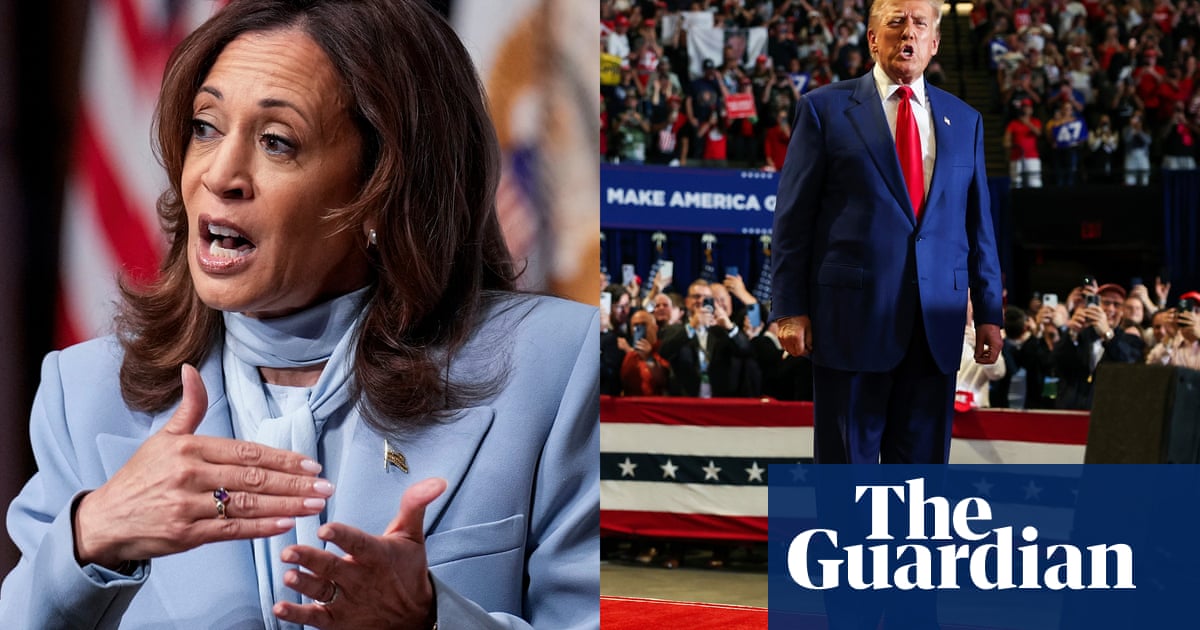The US presidential election remains on a knife-edge 45 days before voters go to the polls, despite Kamala Harris enjoying one of her most encouraging spells of opinion polling since becoming the Democrats’ nominee nearly two months ago.
During yet another momentous week that began with a suspected second assassination attempt against Donald Trump, the latest Guardian 10-day polling averages survey shows Harris increasing her lead to 2.6 points, 48.5% to 45.9%.
While still within error margins, that is an improvement of the 0.9% edge Harris held last week and a significant shift from the statistical dead heat of a fortnight ago before the candidates held their only scheduled televised debate in Philadelphia on 10 September.



I mean, they are significant, and they’re one of our better ways to get information about what’s going on. But there are complexities, and you can’t ignore them.
First, obviously, there’s the issue that any polling thing has, which is the possibility for error. If you call people on phones, some people won’t respond, and those people may not be an even cross-section of society.
Second, the Presidential election isn’t a popular vote. What matters is what’s happening in the swing states. So presenting the output of a national popular poll – which for some reason, a lot of media organizations do, I can only imagine because it’s simpler to understand – isn’t a very good metric for who will win the Presidential election. There’s correlation, sure, but the difference can be quite significant in very close elections like this.
Third, voter turnout matters, not just who a voter prefers.
To compensate for various issues like this, you develop a model that takes input – for which polls are one, but only one, source of inputs – and then train it on past elections. You can model things like increased or reduced response rates to polls among various demographics.
That can be useful, but it’s still not an oracle that can see into the future. Models always deal with a simplified view of the world, aren’t omniscient. We won’t know for absolutely certain how well a model performs in a particular election until that election. Maybe it turns out that there’s a ton of hail on that day, and that there’s a Twitter trend to not go out in hail, or something equally off-the-wall.
If you want to know for sure, the answer is wait for the election.
If you want to get our best guess, the answer is “we can make some predictions, using polling data, statistical analysis, and other historical information, though it’ll inevitably have some level of uncertainty”. Right now, I think that it’s a pretty decent consensus that the race is pretty close, but that Harris has been generally improving her position. No legitimate person modeling the election is going to simply outright call the election at this point, though. They’ll just give estimates as to likelihoods of outcomes.